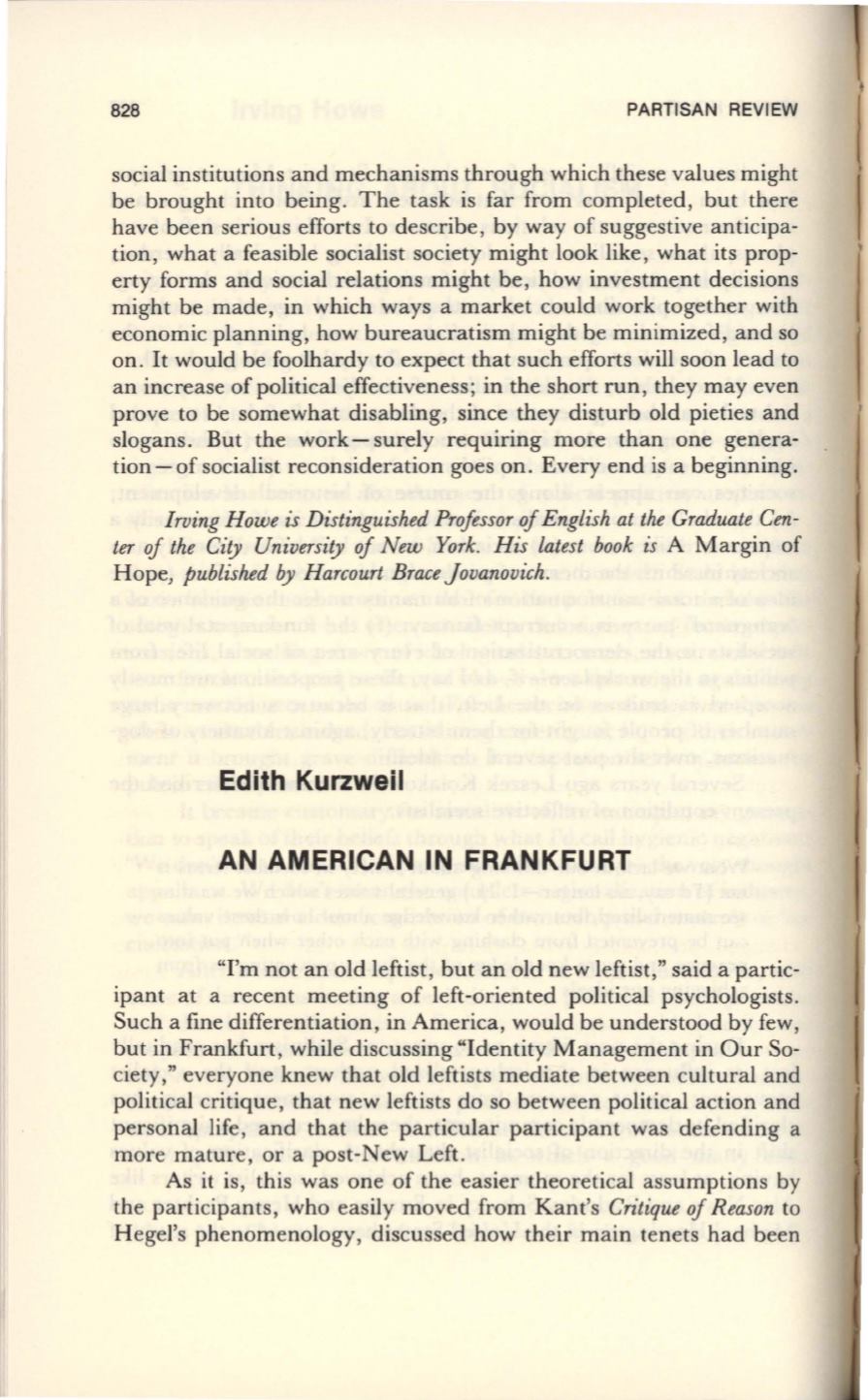
828
PARTISAN REVIEW
social institutions and mechanisms through which these values might
be brought into being. The task is far from completed, but there
have been serious efforts to describe, by way of suggestive anticipa–
tion, what a feasible socialist society might look like, what its prop–
erty forms and social relations might be, how investment decisions
might be made, in which ways a market could work together with
economic planning, how bureaucratism might be minimized, and so
on. It would be foolhardy to expect that such efforts will soon lead to
an increase of political effectiveness; in the short run, they may even
prove to be somewhat disabling, since they disturb old pieties and
slogans. But the work- surely requiring more than one genera–
tion- of socialist reconsideration goes on . Every end is a beginning.
Irving Howe is Distinguished Professor of English at the Graduate Cen–
ter of the City University of New York. His latest book is
A Margin of
Hope,
published by Harcourt Brace Jovanovich.
Edith Kurzweil
AN AMERICAN IN FRANKFURT
"I'm not an old leftist, but an old new leftist," said a partic–
ipant at a recent meeting of left-oriented political psychologists.
Such a fine differentiation, in America, would be understood by few,
but in Frankfurt, while discussing "Identity Management in Our So–
ciety," everyone knew that old leftists mediate between cultural and
political critique, that new leftists do so between political action and
personal life, and that the particular participant was defending a
more mature, or a post-New Left.
As it is, this was one of the easier theoretical assumptions by
the participants, who easily moved from Kant's
Critique of Reason
to
Hegel's phenomenology, discussed how their main tenets had been
f


